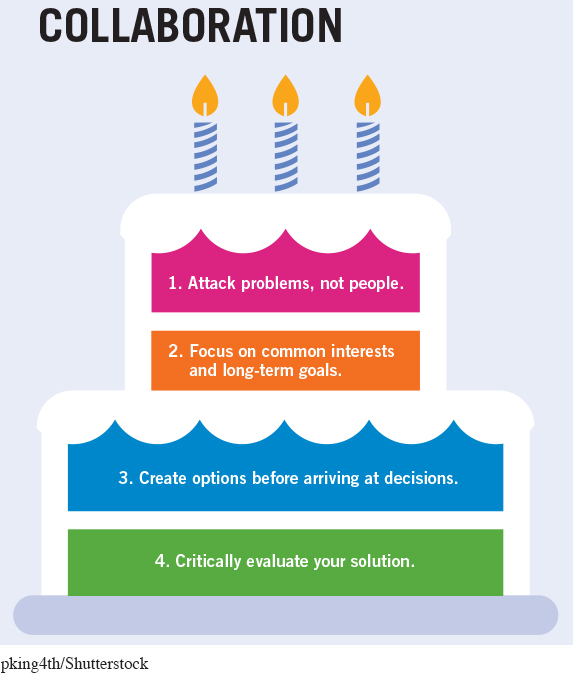Collaboration
The most constructive approach for managing conflict is collaboration—treating conflict as a mutual problem-
When collaborating, try to meet face-
To manage conflict through collaboration, try the following four suggestions (Wilmot & Hocker, 2010). First, attack problems, not people. When talking about the conflict, keep your language courteous, respectful, and positive—
Second, focus on common interests and long-
Third, create options before arriving at decisions. Identify different possible routes for resolving the conflict, and then combine the best parts of them to come up with a solution. Don’t get bogged down searching for the one “perfect” solution—
Fourth, critically evaluate your solution. Carefully consider this question: Is it equally fair for everyone involved?
Because collaboration focuses on respectful and ethical communication, and on satisfying everyone’s interests rather than just one person’s, it tends to net more positive outcomes than the other approaches to conflict. Collaboration increases people’s relationship satisfaction (Frisby & Westerman, 2010), and individuals who regularly use collaborative approaches are more likely to resolve their conflicts and experience shorter and fewer disputes overall (Caughlin & Vangelisti, 2000). To see how you can collaborate, check out How to Communicate: Collaboration in a Conflict on pages 202–203.
